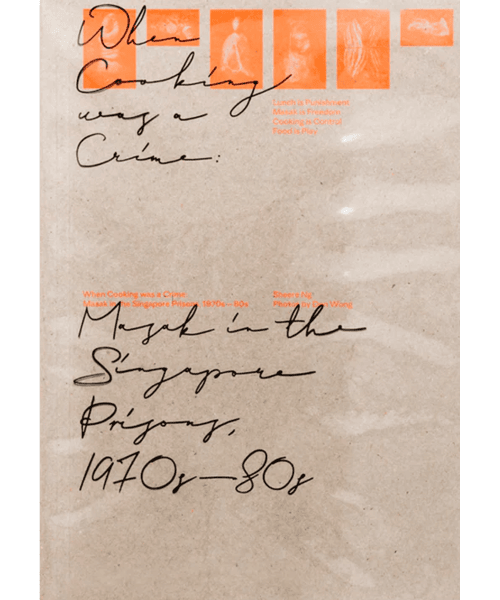When Cooking was a Crime – Masak in the Singapore Prisons, 1970s–80s
By: Sheere Ng, Don Wong
Synopsis
Chamber pots as cooking pots. Blankets as fuel. Cooking was no easy task for those in prison. Moreover, it was illegal. But that did not stop male inmates in Singapore’s prisons and Drug Rehabilitation Centres (DRCs) during the 1970s and 1980s. Driven by the desires for a hot meal and a sense of freedom, they invented ways and means to “masak” with the little resources they had.
When Cooking Was A Crime offers a rare glimpse into the flavours of prison life based on the memories of eight former inmates. Through photographic recreations and interviews, it explores how food and cooking took on new meanings and tastes for those living behind bars.
— from In Plain Words
When Cooking Was A Crime offers a rare glimpse into the flavours of prison life based on the memories of eight former inmates. Through photographic recreations and interviews, it explores how food and cooking took on new meanings and tastes for those living behind bars.
— from In Plain Words
Contributor's Note
When Cooking was a Crime explores prison life through food, sharing the stories of eight former inmates. It made me realise how much we take meals for granted — inside prison, food isn’t just sustenance but a source of resilience, culture and meaning, shaped by scarcity and strict control.
— Aqilah, CCKPL
— Aqilah, CCKPL

